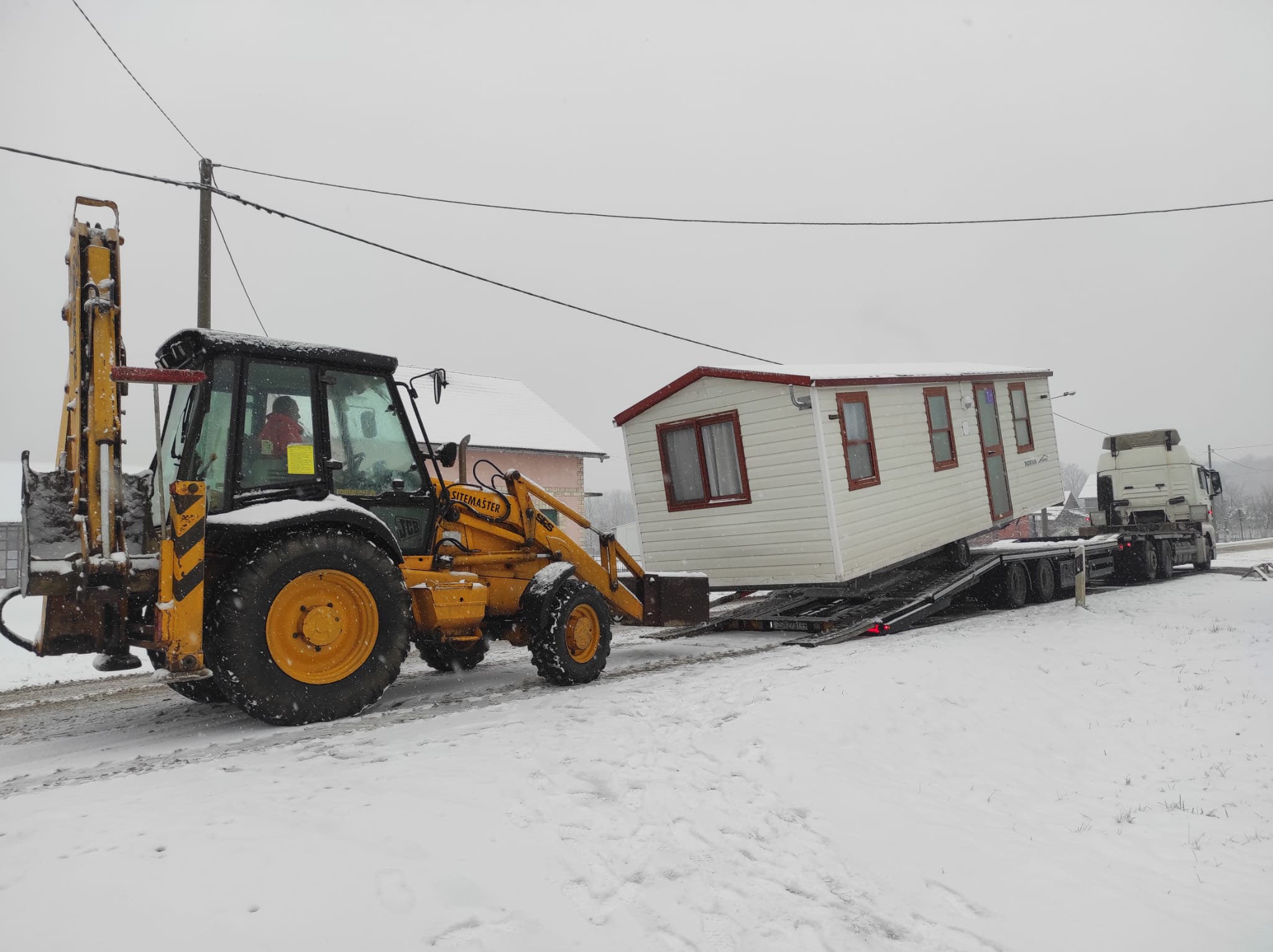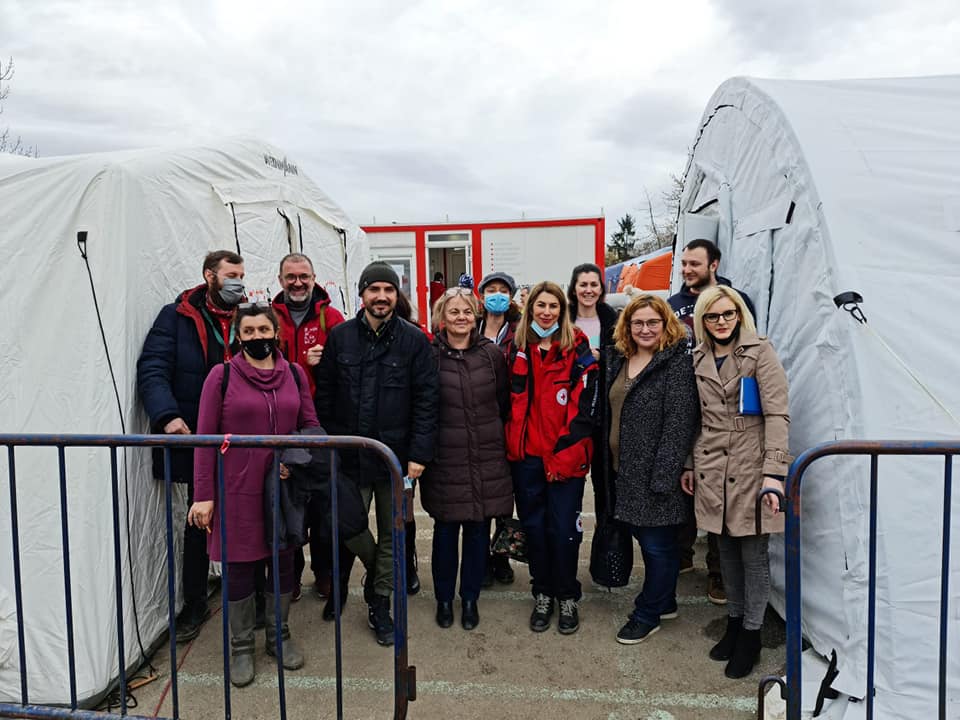
Exactly two years have passed since devastating earthquakes hit the already fragile Sisak-Moslavina county and left ruins, misfortune and hopelessness in their wake. One would think that by now the marks of the earthquakes, life in containers and negligence of those responsible would be behind us, but unfortunately there are no homes in Banovina and rebuilding is happening extremely slowly while the children are growing up and the old are dying in containers. We bear witness to this every day as both humanitarians and donors in the field.

Unfortunately, all forms of crisis support remain just as necessary today as they were in the first months after the earthquake according to an estimate of needs of the victims conducted by Koordinacija humanitaraca (the Coordination of Humanitarians) for the Sisak-Moslavina County over this summer and autumn. Over 80% of those living in container accommodation who were polled are suffering the psychological consequences of the earthquakes even two years later, most of them continuing to feel fear and dealing with insomnia to this day. Meals are not adequate and, in some accommodations, different facilities function poorly so people, for example, do not have any way to wash their clothes. The containers are extremely cold in the wintertime with the condensation of water on the “walls” being pretty much inevitable, while the heating system produces a constant hum. Over 70% of people find that information is not available to them in the right form (this is particularly pronounced among blind persons in the county who do not have any relevant information on the rebuilding efforts or legal and humanitarian aid available to them in Braille), 70% of those belonging to vulnerable groups are having problems with buying necessary medication due to their low income, and 50% stated that they are in need of financial aid. Over 50% of those belonging to vulnerable groups do not trust institutions helping those who are at risk of violence, 40% of those in vulnerable groups have trouble accessing public transportation and for that reason cannot access the services they need like healthcare, social care and stores, while 20% of the affected populations still depends on “drinking” water from wells that remains questionable in quality.

This winter, the Coordination of Humanitarians is still witnessing poor living conditions suffered by many of those affected who are living in temporary accommodation and all of those who are still waiting for the collapsed homes to be rebuilt, particularly those in rural and isolated areas whose access to health and social services will be made even more difficult. This is why it is about time for the recovery and rebuilding efforts to intensify and speed up. If this does not happen, any houses that may someday be built will be left empty.
The state has renewed a total of six houses marked by the red sticker as life-endangering while deceiving the broader public with stories of smaller intervention on houses marked with yellow and green stickers. Let us not forget, most static examinations to give marks accessing the damage were done thanks to volunteer efforts in the first weeks following the earthquake, while the citizens of Banija are still waiting for the official foundational examinations promised long ago.
The ground is continuing to shake so already damaged buildings are collapsing further. Two years have passed and systematic rebuilding and its end are nowhere in sight. The Ministry issues 16 rebuilding resolutions a month, amounting to less than one in a single working day!!! Even the recent promise of the process speeding up with the state issuing 100 resolutions a month still speaks of unimaginable slowness. Changes in the field are barely visible-from insufficient efforts to tear down damaged buildings to rebuilding and renewal of infrastructure. Along with that, we are troubled by another important question- how will the renewal of buildings be sustained long-term if contractors are known to be employed despite frequent unprofessionalism in both performance and business? Instead of the renewal that should have already been finished, there are cases of contractors declaring bankruptcy after withdrawing funds while houses that started being rebuild are left behind to rot right in front of the already suffering population.

Those in charge are not even mentioning how many families whose houses are marked red are not entitled to renewal due to not satisfying the criteria. The set criteria would be difficult to meet even in a bigger, more “organised” area, let alone in a county with unhealed wounds from as far back as the Croatian War of Independence. Functioning renewal efforts are needed now and not in the 4 years spoken of by the government. At the same time, it is necessary to carry out a thoughtful and sustainable strategy to develop this region so that what remains of the population doesn’t move away and to provide young people incentive to stay. Data from August 2021 show that around 3 600 people have left Banija, but it is unofficially estimated that the actual number could be double. The question is, how many more people are planning to leave, especially young ones that are a part of the work force?
Due to all of the facts stated here, the signatories of this announcement are sending a clear appeal to the government: it is time to start taking full political responsibility for the halt in the renewal efforts; to sharply and immediately increase effectiveness of public services in renewal and recovery of communities in their full spectrum, from rebuilding and accommodation, health and social care, through education and employment opportunities, to free legal aid and support for those working in agriculture. This will be impossible without efficient coordination and a central point of management. Effective implementation demands more people in local services, many more contractors with quality supervision, strengthening local organisations of civil society through appropriate funding programmes, more vehicles and mobile teams in the field, real cooperation of the public sector with non-profit, and business sectors, and much less bureaucracy
We are particularly concerned with the needs of the children and the young, without whom the region has no future. This is why support to the local schools, kindergartens and children’s homes, as well as associations in education and culture needs to be strengthened. The work of those employed in education should be rewarded with higher budgetary investment into their salaries as they have been working miracles in impossible conditions across Banija/Banovina and forming generations with the potential to become a strong foundation of a new more demographically developed, socially sensitive, and economically prosperous Sisak-Moslavina County.
The biggest pledge to the sustainable future of this long-suffering region are the big hearts and defiant persistence of its population. Let’s show them that they have not been forgotten! Let’s show them our respect with actions, not words! That is our message to the Prime Minister and all those bearing political responsibility for the future of the earthquake-devastated Banovina. Show real support today for a better future for us all tomorrow.
Signatories members of the Coordination of Humanitarians:
SOLIDARNA – Zaklada za ljudska prava i solidarnost
Projekt građanskih prava Sisak
DKolektiv-organizacija za društveni razvoj
Hrvatski centar za razvoj volonterstva
Udruga Krijesnica
Zaklada Zamah
Documenta – Centar za suočavanje s prošlošću
O.A.Z.A. – Održiva Alternativa ZAjednici
ADRA Hrvatska
Projekt građanskih prava Sisak
Agencija lokalne demokracije Sisak
Humanitarna udruga Ljudi za ljude
Udruga IKS (Udruga za promicanje informatike, kulture i suživota)
Supporters of the announcement:
Centar za kulturne djelatnosti
Centar za mirovne studije
Udruga za razvoj civilnog društva Bonsai
CROSOL – Platforma za međunarodnu građansku solidarnost Hrvatske
Kuća ljudskih prava Zagreb
Centar za mir, nenasilje i ljudska prava – Osijek
Ekološko kulturna scena “EKS” Hrvatska Kostajnica
Udruga LET
ACT Grupa
Status M
Politiscope
Udruga žena Vukovar
Zaklada Slagalica
Forum za slobodu odgoja
Ženska udruga “IZVOR”
Rehabilitacijski centar za stres i traumu
Bacači sjenki
Ambidekster klub
DEŠA – Dubrovnik
Ženska soba
DEBRA, društvo oboljelih od bulozne epidermolize
Udruženje za razvoj kulture “URK”
Roditelji u akciji
*Naslovna fotografija: Daniel Pavlić